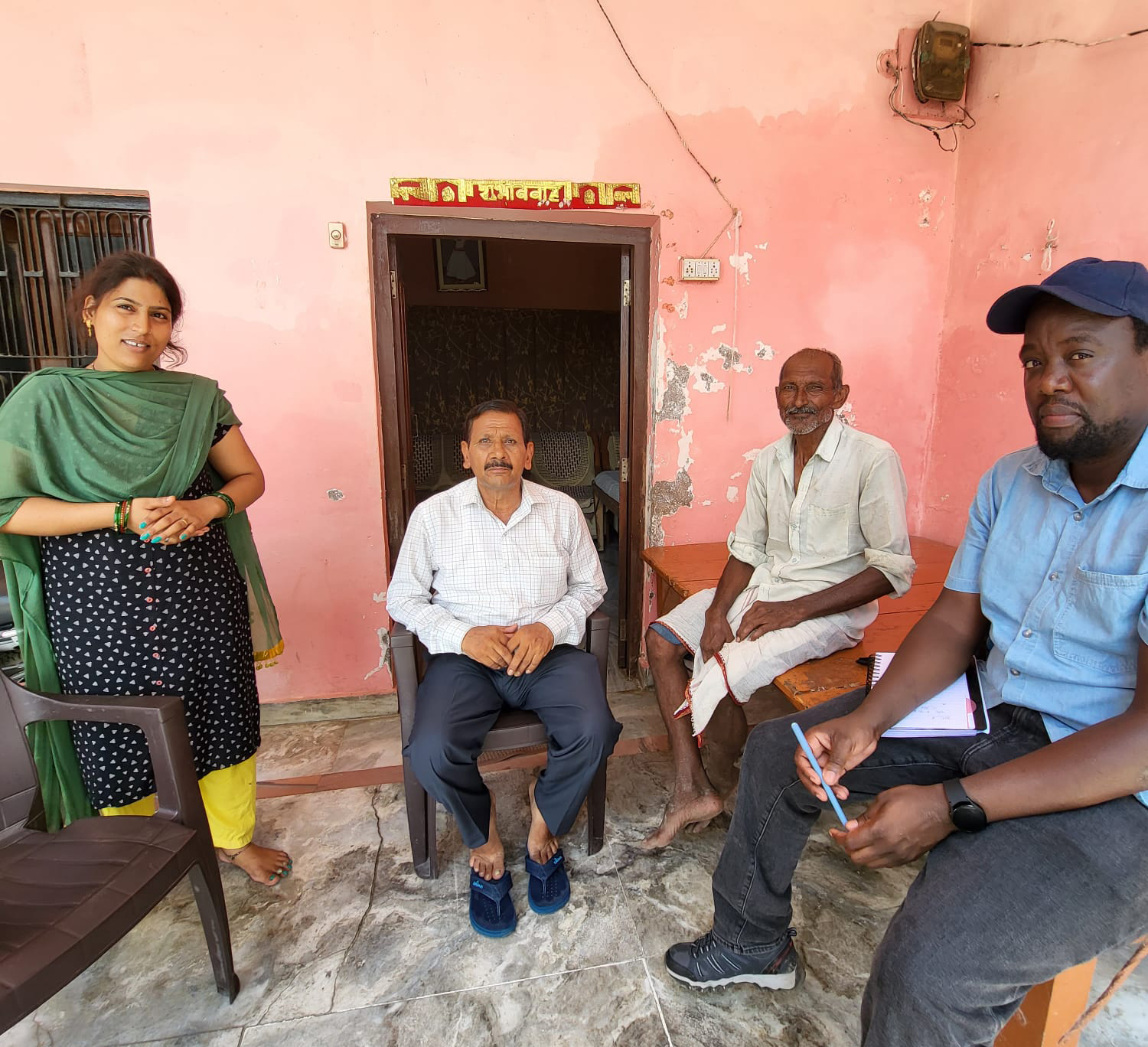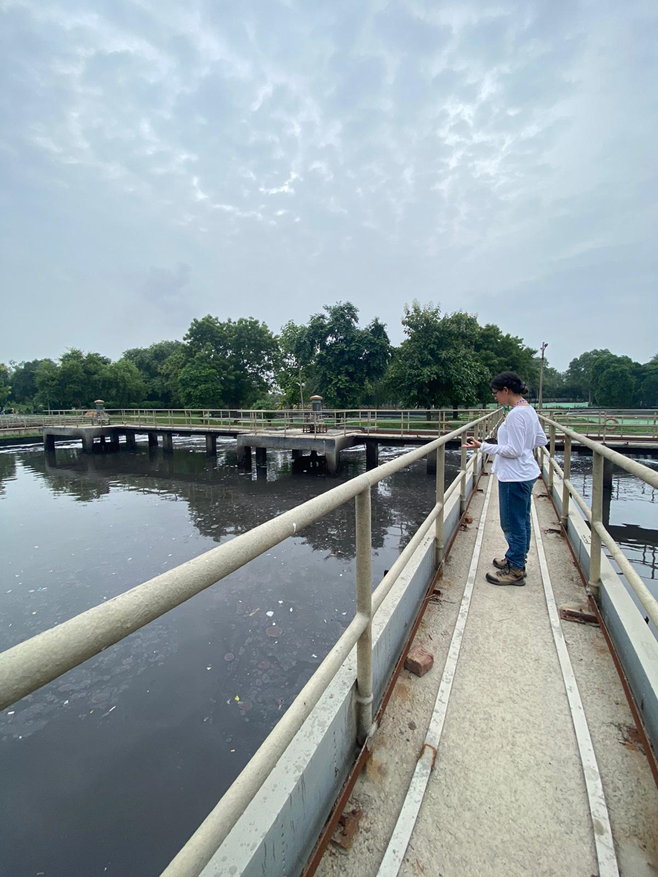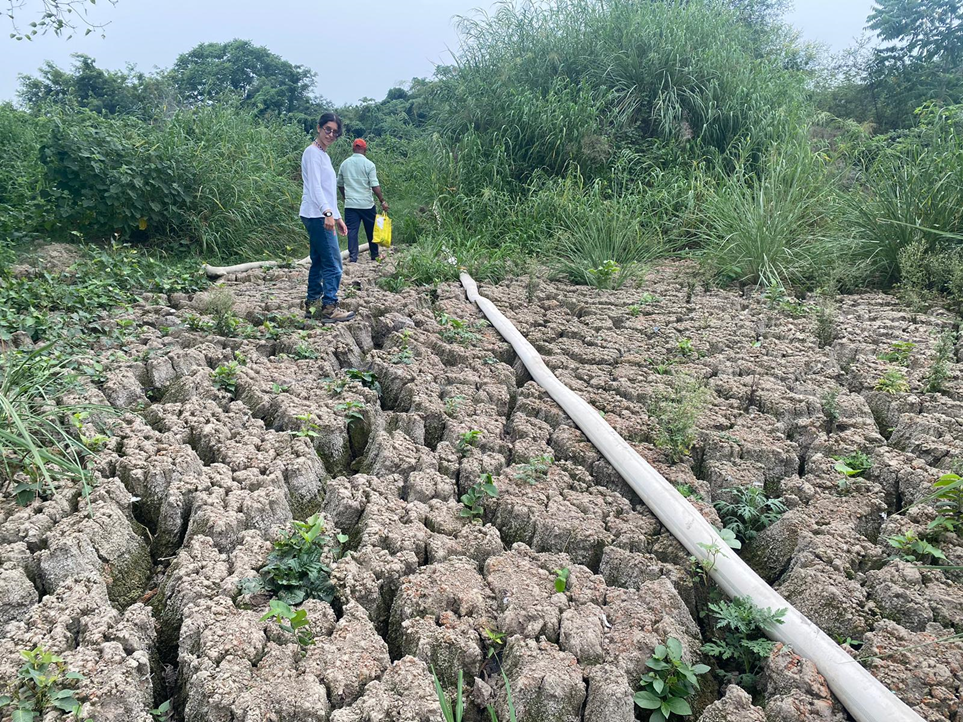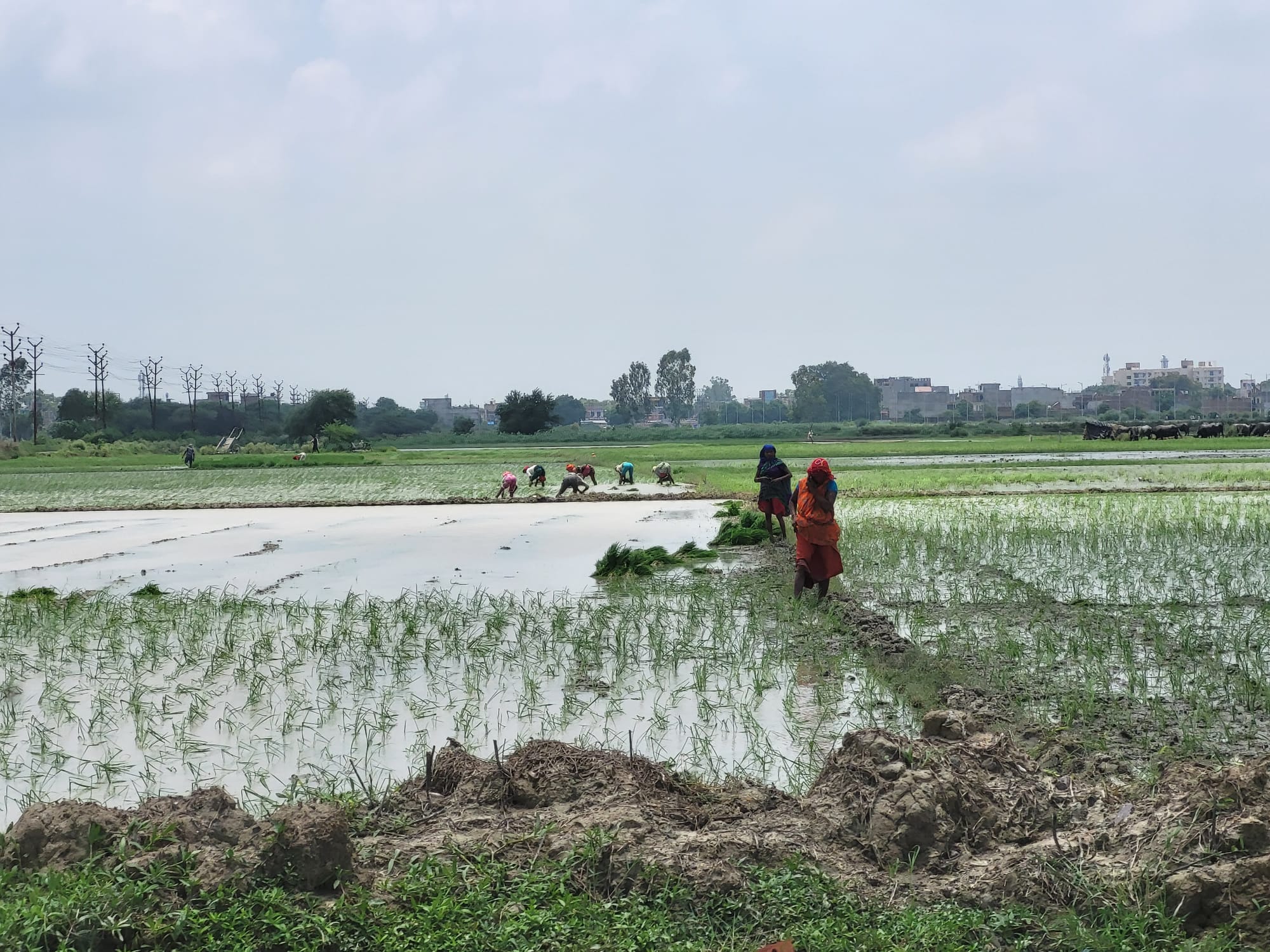During the past year, three MSc students from IHE Delft Institute for Water Education travelled to IIT Kanpur to undertake their MSc thesis research. All three were working on different aspects of health, risk and wastewater treatment and reuse in farming. Cuthbert Nkhoma from Zambia, Michelle Cedeño Villarreal from Columbia and Delmo Roncarati Vilela, from Brazil.
Wastewater reuse
Delmo and Cuthbert were working in a local village where wastewater from the sewage treatment plant was being reused.

Delmo explored the seasonal and gendered aspects, relating to occupation risk of the farmers reusing the effluent from the wastewater treatment plant, this was following on from Folake’s (a former IHE student) work in 2022.
Cuthbert used oral histories to explore the historical impact of the wastewater reuse scheme on farming practices and health.
The levels and fate of the chromium and occupational risk for both the wastewater treatment plant operators and farmers, which is often discharged from the local tanneries into the sewage network, was then explored by Michelle. She also tested the chromium levels in the secondary sludge.

Insights
All three theses gave us further insights into wastewater treatment and reuse in this area. Delmo confirmed that both men and women undertook similar farming activities. Cuthbert could show that the introduction of the wastewater reuse scheme has been a significant driver for changing farming practices in this area. Michelle found that that there are significant levels of chromium accumulating in the secondary sludge of the wastewater treatment plant, which is often distributed to municipal parks and farmers.

All students enjoyed this incredible once in a lifetime opportunity and appreciated the support of our partners. They have now completed their MScs and have graduated in the meanwhile.
Read the theses:
Long-term changes in wastewater reuse and health, a case study in Kanpur, India by Nkhoma, Cuthbert

